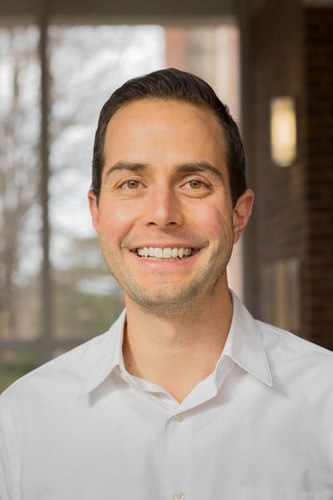Noel Habashy
Associate Teaching Professor
814-865-8309

Professional Bio
Noel Habashy has worked in the fields of international development and international education for over 15 years. His current research projects include examining the perspectives of community members in the Global South that host visiting service learning from the Global North, the development of cultural humility through global learning, and exploring the nexus of Water-Energy-Food in Colombia. He coordinates a minor international agriculture and teaches classes on examining food security around the globe.
Websites
Research Interests
Food Security, International Development, Student Civic Engagement, Critical Development, Global South-Global North Partnerships, Global LearningRelated Materials
Noel Habashy
Chapter
Our Research
This chapter explores key theoretical concepts relevant to the planning and implementation of international (and domestic) service-learning programs. This chapter explores the power dynamics of international service-learning through four key theoretical concepts: the politics of power, local knowledge, framing, and problem definition. While these ideas are particularly appropriate for international service-learning program, they are also relevant for domestic service-learning partnerships in nearby communities. In addition to providing theoretical frameworks, this chapter identifies recommendations for practice in order to address each of the four challenges identified. Universities must consider these factors if they wish to develop stronger programs with reciprocal benefits to communities and students. With stronger partnerships, better development will occur for both students and community members.
Noel Habashy, Laura Cruz
Article
Our Research
Cultural humility is a critical skill for effective intercultural interactions. While common in other scholarly fields, the concept is seldom found in the literature of global learning and international education. Utilizing grounded theory, this study explores the development of cultural humility through qualitative data analysis of in-class assignments and reflection journals from a university course in the United States (n=18). Throughout the semester students worked in teams to write grant proposals for agricultural development projects in Kenya. Examining student work and reflections sheds light on differing avenues of global learning, which has traditionally prioritized international travel as the core means of learning. This article proposes a pedagogy of cultural humility to promote global learning through a variety of educational interventions. Prioritizing cultural humility can yield enhanced respect for others, providing a focus on lifelong learning, more meaningful global understanding and more fruitful intercultural relationships. In an increasingly interconnected globe, cultural humility offers a meaningful framework to support substantive interactions between individuals across the globe or down the street.
Article
Our Research
There is strong body of literature exploring community member and resident perspectives on tourism that has emerged from numerous locations across the globe. Yet virtually none of this writing explores the role of repeat community-engaged service learning with local communities. What theory does exist on the topic indicates that increased rates of community member participation yield more positive viewpoints on community–program partnerships. Engagement in this form of tourism development in communities may have an influence on participation in the community institutions that have the most ability to influence local development outcomes. This qualitative, ethnographic study fills this gap in the literature by analyzing community members' emic perspectives of a recurring educational service learning program to a lesser developed region of Costa Rica. Surprisingly, community residents do not view educational service learning as a form of tourism, though they do see it as valuable for setting the stage for desired tourism development in the future. Findings also indicate community members' involvement in key institutions makes it more likely that they perceive the impact of students in the community positively. As the first study to analyze educational service learning travel from a community development and resident perspective, this work will provide a valuable theoretical contribution relevant to those engaged in this form of travel across the Global South.